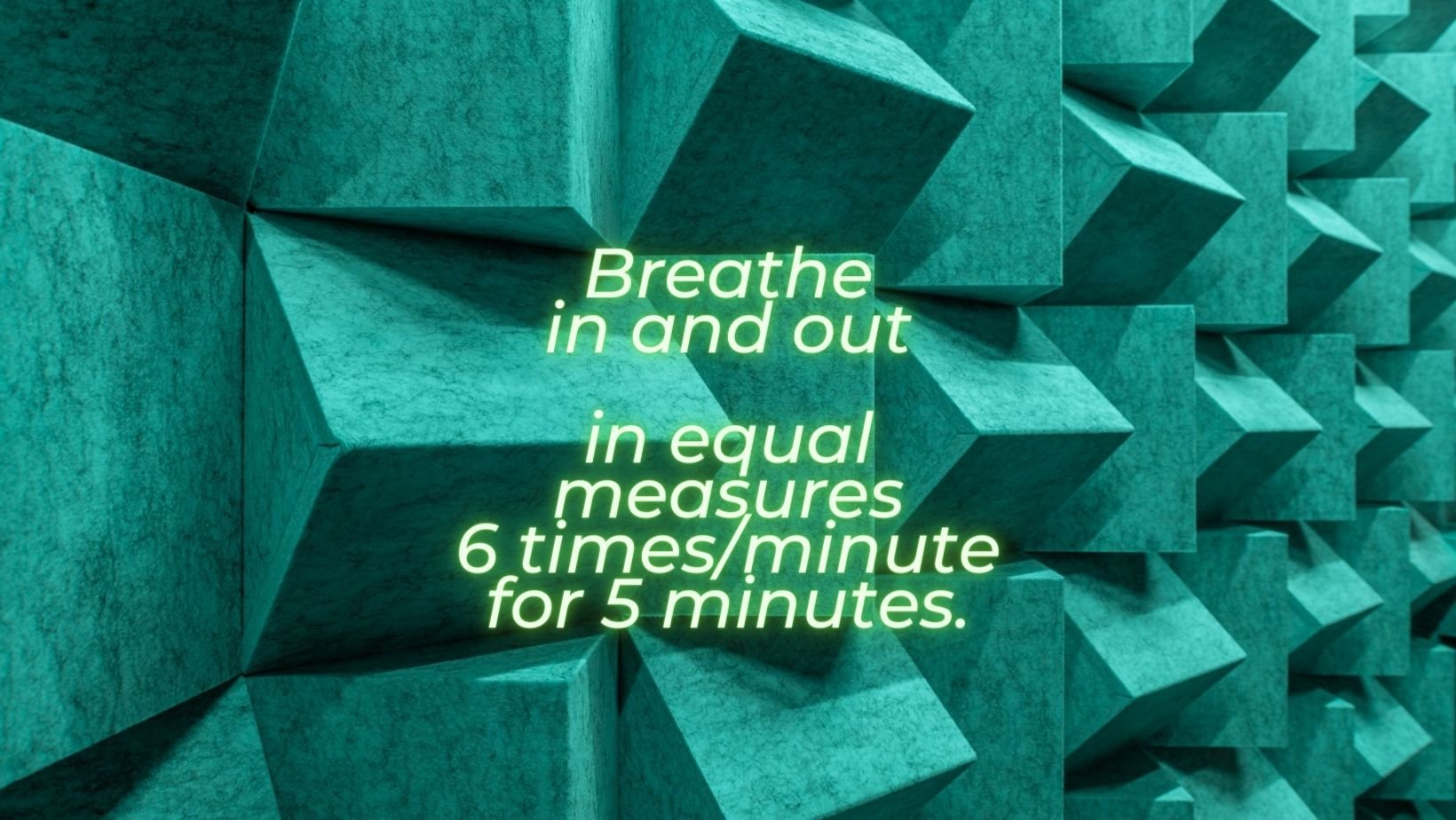
The heart is smart. Harmonising our heartrate through the breath strengthens the body and mind.
Calm, surprised, out of breath, concentrated, worried, sleepy, dancing or running, lying down or biking: in just a day, we go through many states that impact our heartrate. Our heartbeat is constantly changing, sometimes by a little, sometimes by a lot. Sometimes, it accelerates quickly. These changes impact how we feel in our body and mind.
More than half of our wasted time is thought to be linked to stress or anxiety. Times are heavy for the heart, with stress, burnout and cardiovascular troubles. The heart will both suffer from and protect us against these aggressions.
What if we could do something for our physical or mental wellbeing in just a few minutes, no matter where we are, with just a bit of air to breathe?
Learn about it. Heart coherence
Based on research in cardiology and neurology, this controlled breathing technique - that uses slow, regular breaths - slows down the heartrate. It creates an ideal breathing rhythm in many ways.
It is surprisingly simple to practice and recommended by the French Heart Federation as well as many doctors, coaches and clinicians.

"You can practice coherence in all situations of daily life. You can enter coherence whether your heartrate is 120 or 55," says Dr. David Servan Schreiber, who has worked to spread the benefits in France of this practice discovered by his American colleagues in the 1990s.
Canadian doctor David O'Hare encourages us to try it three times a day for six equal breathing cycles per minute for five minutes: Cohérence cardiaque 3.6.5. (Ed. Thierry Souccar, 2019).
The many powers and benefits of this "active method"
With this, Dr David Servan Schreiber emphasises that breathing in coherence is a way of taking action for yourself, of taking power.

Instantly, "it induces an inner calm":
The brain interprets this breathing as a sign of relaxation and reinforces a feeling of well-being. The effects are immediate: a general feeling of peace and calm that is surprisingly effective at mitigating a high-stress situation. It can last several hours.
By practicing it every day, it brings well-known benefits:
it synchronises our nervous system with our cardiac system
it creates a stable state of harmony between body and mind
it reduces cortisol, the stress and anxiety hormone
it stimulates the production of the anti-ageing hormone DHEA
it increases oxytocin levels, the attachment, love and trust hormone
it improves our cognitive capabilities
it improves concentration by producing alpha waves while we breathe
it encourages us to listen and be present, and it fosters our memory, learning and coordination.
Over the long term, a virtuous chronicity is established.
The more we breathe in coherence, the more the heart reproduces this frequently.
NASA researchers have shown that three to six weeks establish this rhythm as a new habit for the body with long-term stabilising effects. In short, a "chronic" benefit.
Neuroscientists are fascinated by the links between the heart and the brain: heart coherence is thought to be the starting point for a virtuous association between our sympathetic nervous system, which speeds up the heartrate, and the parasympathetic nervous system, which slows it down.
Week after week, daily practice effortlessly improves our cardiovascular functioning (lower blood pressure).
It stimulates the immune and digestive systems.
It improves our health.
Why not try out heart coherence, even just 15 minutes a day? For four to six weeks?
Photo Credits
L’ATELIER by ALL, Accor Arena, Paris, photo David-Emmanuel Cohen
